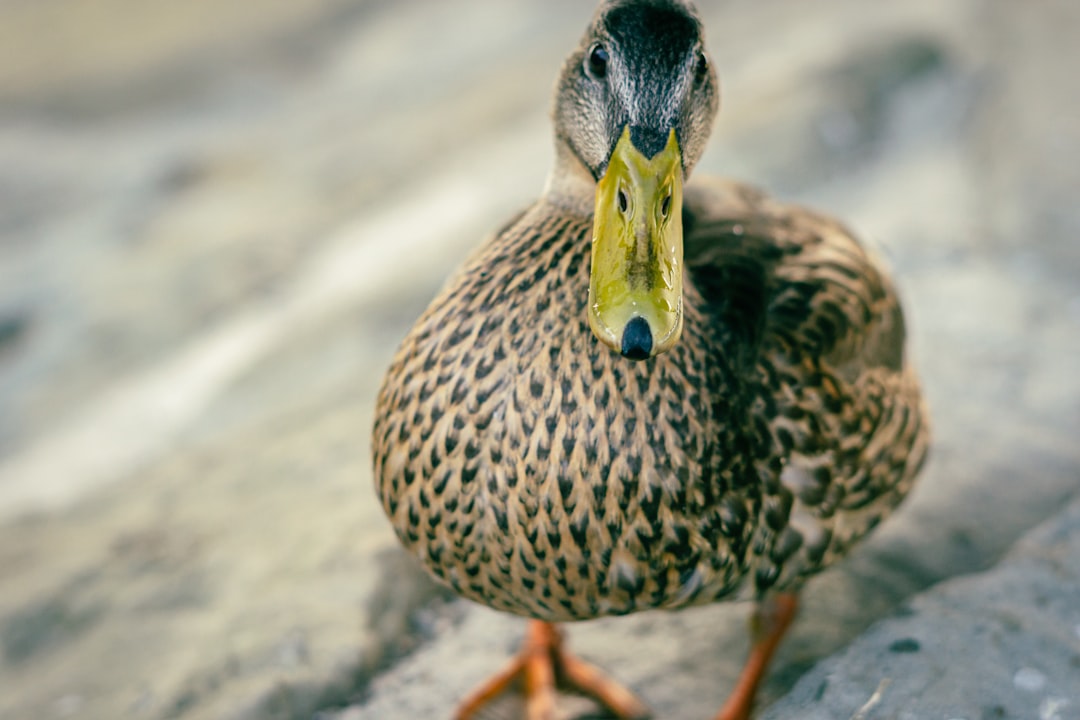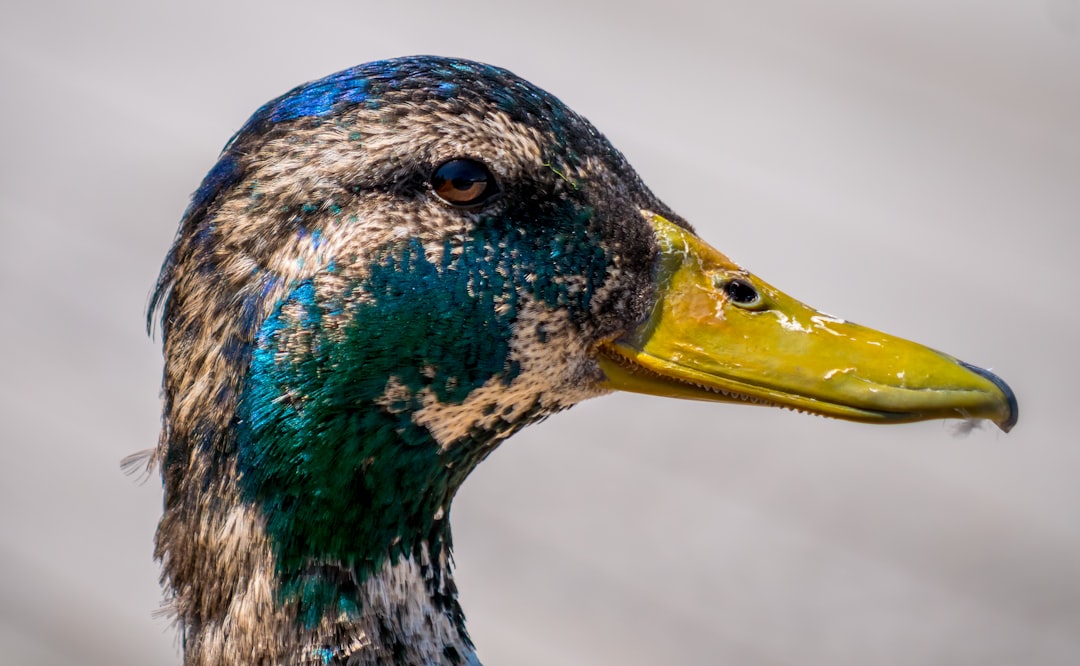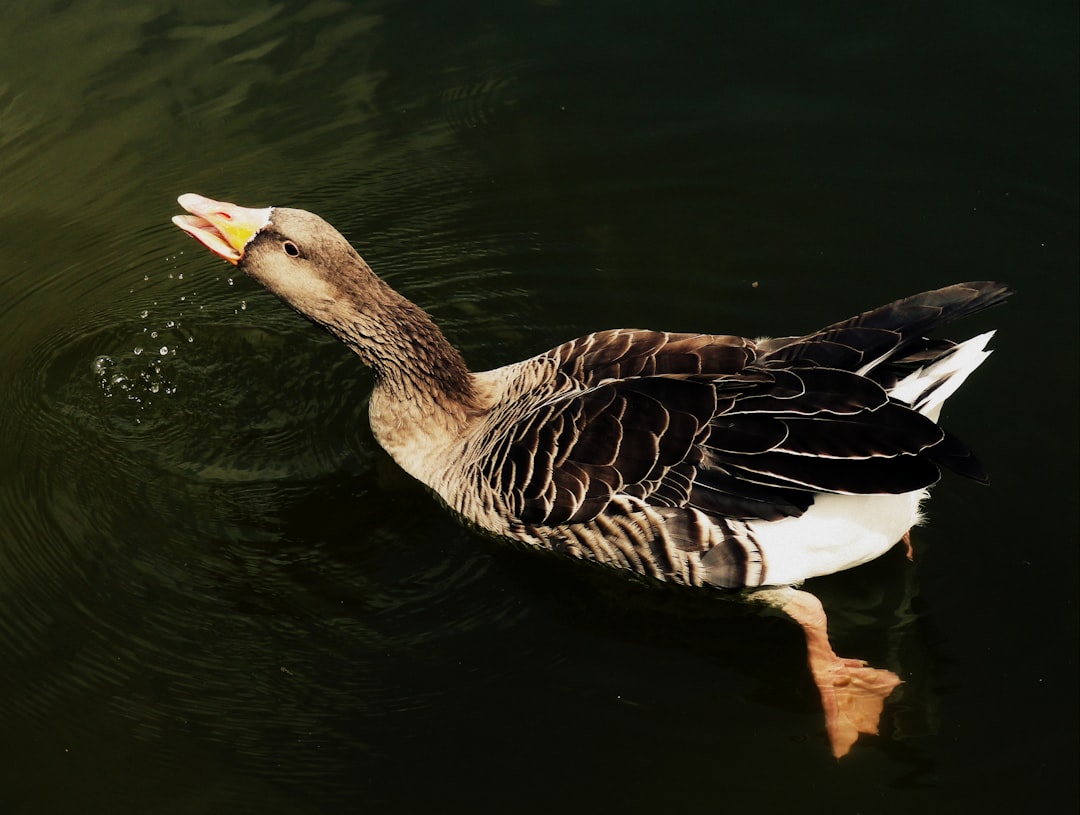Why Is My Ducks Beak Pale? A pale beak on a duck can be an indication of a nutritional deficiency or an underlying health issue.
Poor nutrition, especially a lack of iron, can cause a pale beak. Additionally, liver disease or anemia can also result in a pale beak.
If you notice a change in your duck’s beak color, it is essential to consult a veterinarian to determine the cause and appropriate treatment.
Ensuring that your duck is receiving a balanced diet with adequate nutrients and regularly monitoring its health can help prevent a pale beak.
Ducks are fascinating creatures with unique features, including their colorful beaks. So, if you notice that your duck’s beak appears pale, it could be a cause for concern.
A pale beak on a duck can indicate a nutritional deficiency or an underlying health issue.
In this blog post, we will discuss in detail the reasons why your duck’s beak may appear pale and what you can do to help.
What Color Should A Ducks Beak Be?
If you’re wondering what color a duck’s beak should be, the answer is not as straightforward as you might think. Depending on the species of duck, the color of their beak can vary greatly.
For example, mallards have a bright yellow beak, while the beak of a tufted duck is blue-grey.
Some ducks even have multi-colored beaks, such as the Northern Shoveler, which has a blue-green and black beak.
One thing to note is that the color of a duck’s beak can change depending on their age and gender.
Young ducks may have a duller or darker beak that lightens as they mature. Females may also have a different colored beak than males of the same species.
Why Is My Ducks Beak Turning Pale?

If you’ve noticed that your duck’s beak is starting to turn pale, it can be a sign of a Vitamin A deficiency or liver disease.
Vitamin A is essential for maintaining healthy skin, feathers, and beak in ducks. A deficiency in this crucial nutrient can cause the beak to become rough, dry, and prone to cracking, leading to discoloration.
On the other hand, liver disease can cause a buildup of bilirubin in the bloodstream, which can lead to yellowing of the skin and beak.
It is essential to ensure that your ducks are receiving a balanced and varied diet that includes plenty of Vitamin A-rich foods such as leafy greens, carrots, and sweet potatoes.
If you suspect liver disease, it is crucial to consult with a veterinarian who can provide proper diagnosis and treatment.
Why Does My Duckling Have A Pale Beak And Is Having Trouble Walking?
If you notice that your duckling has a pale beak and is having trouble walking, it could be a sign of a Vitamin D deficiency.
This essential nutrient is crucial for maintaining strong bones in ducks, and a lack of it can cause bone deformities and weakness.
A diet lacking in Vitamin D or not enough exposure to sunlight can lead to this deficiency.
To prevent this issue, ensure that your ducklings have access to sunlight or UV lighting and are receiving a balanced diet that includes foods rich in Vitamin D, such as egg yolks and fish oil.
Here are some possible reasons that’s Why Is My Ducks Beak Pale?
1. Lacks of Nutrients Can Cause The Beak To Appear Pale

It is essential to provide adequate nutrients to your birds to maintain their overall health. One of the most visible signs of nutrient deficiency is the appearance of a pale beak.
The beak is an important part of a bird’s anatomy, used for feeding, preening, and even defense.
A lack of nutrients, especially calcium and vitamin D, can cause the beak to weaken, resulting in a pale and brittle appearance.
Additionally, a poor diet lacking in essential nutrients can lead to a weakened immune system, making birds more susceptible to infections and diseases.
Feeding a balanced diet that includes a variety of fruits, vegetables, grains, and protein sources is crucial to ensure that your bird receives all the necessary nutrients.
2. As Ducks Age, Their Beaks May Naturally Become Paler In Color
As ducks age, their beaks may naturally become paler in color. This is due to the gradual loss of pigment in the beak.
It’s important to note that this is a normal and natural process and does not necessarily indicate any health issues.
However, it’s still important to monitor the condition of your duck’s beak and ensure that it’s not causing any problems with eating or drinking.
If your duck’s beak appears to be excessively pale or is showing signs of damage, it’s important to seek veterinary advice.
3. Liver Issues, Anemia, And Other Diseases Can Cause A Duck’s Beak To Appear Pale
Liver issues, anemia, and other diseases can also cause a duck’s beak to appear pale.
If you notice any other symptoms or changes in your duck’s behavior, such as lethargy, loss of appetite, or difficulty breathing, it’s crucial to seek veterinary advice immediately.
These could be signs of underlying health issues that require prompt treatment. In some cases, medication or supplements may be prescribed to help address the underlying condition causing the pale beak.
How To Prevent My Ducks Beak Turning Pale?
1. Ensure a Nutritious Diet:
Providing your ducks with a balanced diet rich in vitamins and minerals can help prevent their beaks from turning pale.
Feed them a diet that includes fresh fruits, vegetables, and high-quality feed.
2. Provide Adequate Water:
Ducks need clean and fresh water to keep their beaks hydrated and healthy.
Ensure that your ducks have access to clean water at all times, and that their water source is free from bacteria and other contaminants.
3. Maintain Optimal Temperature:
Ducks are susceptible to frostbite, which can cause their beaks to turn pale.
Ensure that your ducks have a warm and dry shelter during cold weather, and protect them from freezing temperatures.
4. Avoid Stress:
Stress can cause a range of health problems, including pale beaks.
Ensure that your ducks have a stress-free environment and that they are not exposed to any potential predators or other stressors.
5. Regular Health Checkups:
Regular checkups from a veterinarian can help identify any health issues, including pale beaks, before they become serious problems.
Schedule regular health exams for your ducks to ensure their overall well-being.
A Duck’s Beak Requires Specific Nutrients To Maintain Its Vibrant Color
A duck’s beak is a vital organ that requires essential nutrients to maintain its vibrant color and functionality.
The beak plays a crucial role in a duck’s survival, as it is used for feeding, drinking, grooming, and even defense.
It is made up of keratin, the same protein found in human hair and nails, and it must be kept healthy to prevent cracking or breaking.
To ensure a duck’s beak stays in top condition, it is essential to provide them with a balanced diet that includes specific nutrients.
Vitamin A, for instance, is crucial for maintaining the beak’s vibrant color, while vitamin D is necessary for proper calcium absorption, which helps strengthen the beak.
A diet rich in protein and minerals like calcium and phosphorus can also help maintain the beak’s strength.
A Balanced Diet And Supplements Can Help Prevent This Issue

In some cases, supplements may be necessary to ensure that a duck is receiving all the nutrients they need to maintain a healthy beak.
However, it’s important to consult with a veterinarian or avian nutritionist before adding any supplements to your duck’s diet.
Over-supplementing can lead to health problems, just as under-supplementing can. Additionally, providing your ducks with access to fresh water for drinking and bathing is crucial for maintaining their overall health.
Water helps keep the beak clean and hydrated, preventing it from becoming dry and brittle.
In conclusion, a pale beak in ducks can have several underlying causes, including nutrient deficiencies, aging, and certain illnesses.
Watch Video: Why Is My Ducks Beak Pale?
What Does The Color Of A Duck’s Beak Mean?
The color of a duck’s beak can provide helpful insights into their overall health. A pale beak may indicate nutrient deficiencies, aging, or certain illnesses.
On the other hand, a bright and vibrant beak is a sign of good health and proper nutrition.
It’s important to monitor the condition of your duck’s beak regularly and seek veterinary advice if you notice any changes or abnormalities.
Last Talk: Why Is My Ducks Beak Pale?
It’s crucial to understand the significance of a duck’s beak and the role it plays in their overall health and well-being.
A pale beak can have several underlying causes, including nutrient deficiencies, aging, or certain illnesses.
By providing your ducks with a well-balanced diet rich in essential nutrients and supplements as needed, you can help prevent or address this issue early on and ensure their overall health and survival.
Additionally, regular inspections of the beak for cracks or damage, keeping it clean, and providing access to fresh water are essential steps in maintaining its health.
FAQs
What causes a duck’s beak to become pale?
A pale beak in ducks can be caused by nutrient deficiencies, aging, or certain illnesses.
How can I prevent my duck’s beak from becoming pale?
Providing a well-balanced diet that includes specific nutrients, supplements as needed, and access to fresh water for drinking and bathing can help prevent a duck’s beak from becoming pale.
Can supplements help improve a duck’s pale beak?
Supplements may be necessary to ensure a duck is receiving all the nutrients they need to maintain a healthy beak.
However, it’s important to consult with a veterinarian or avian nutritionist before adding any supplements to your duck’s diet.
What does the color of a duck’s beak indicate?
The color of a duck’s beak can provide insights into their overall health. A pale beak may indicate nutrient deficiencies, aging, or certain illnesses, while a bright and vibrant beak is a sign of good health and proper nutrition.
How can I maintain my duck’s beak health?
Regularly inspecting the beak for cracks or damage, keeping it clean, providing a balanced diet, and access to fresh water can help maintain a duck’s beak health. Additionally, providing proper living conditions that allow them to engage in natural behaviors like foraging and swimming can contribute to their overall well-being.




